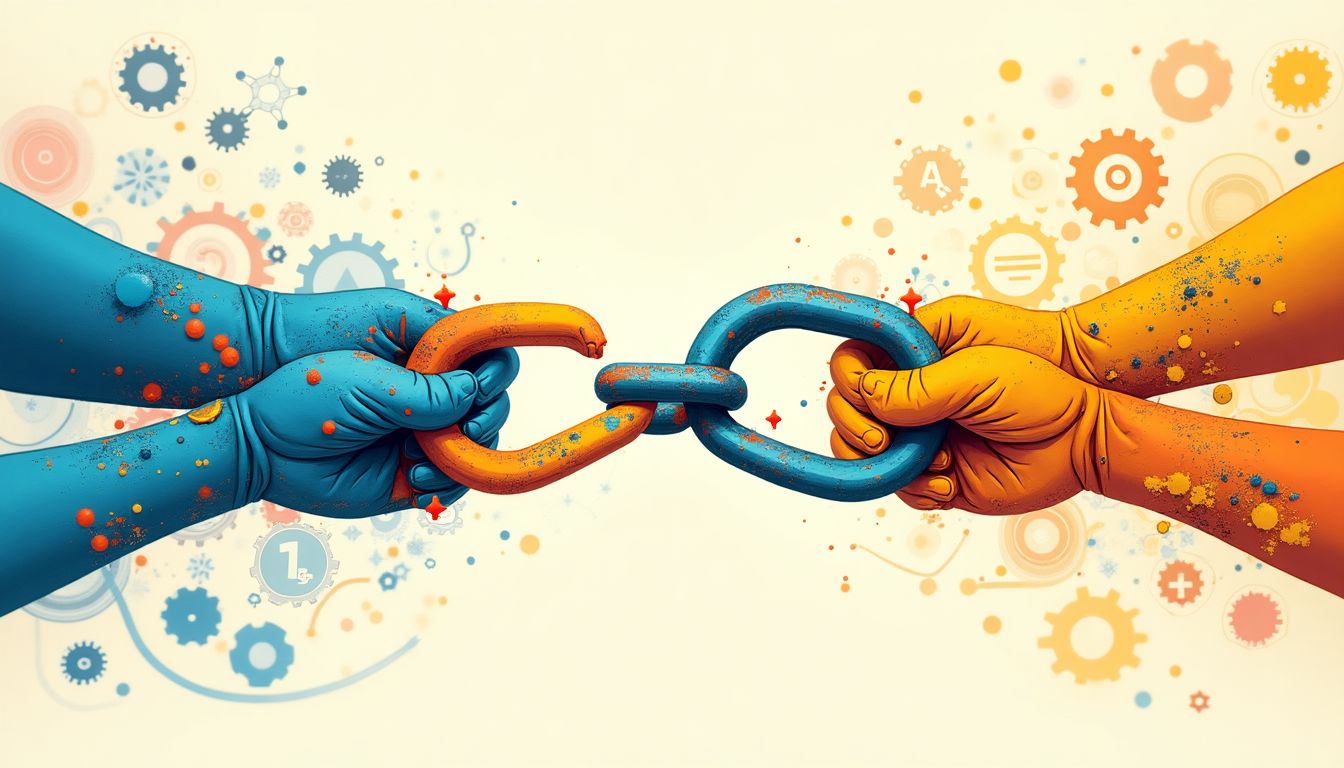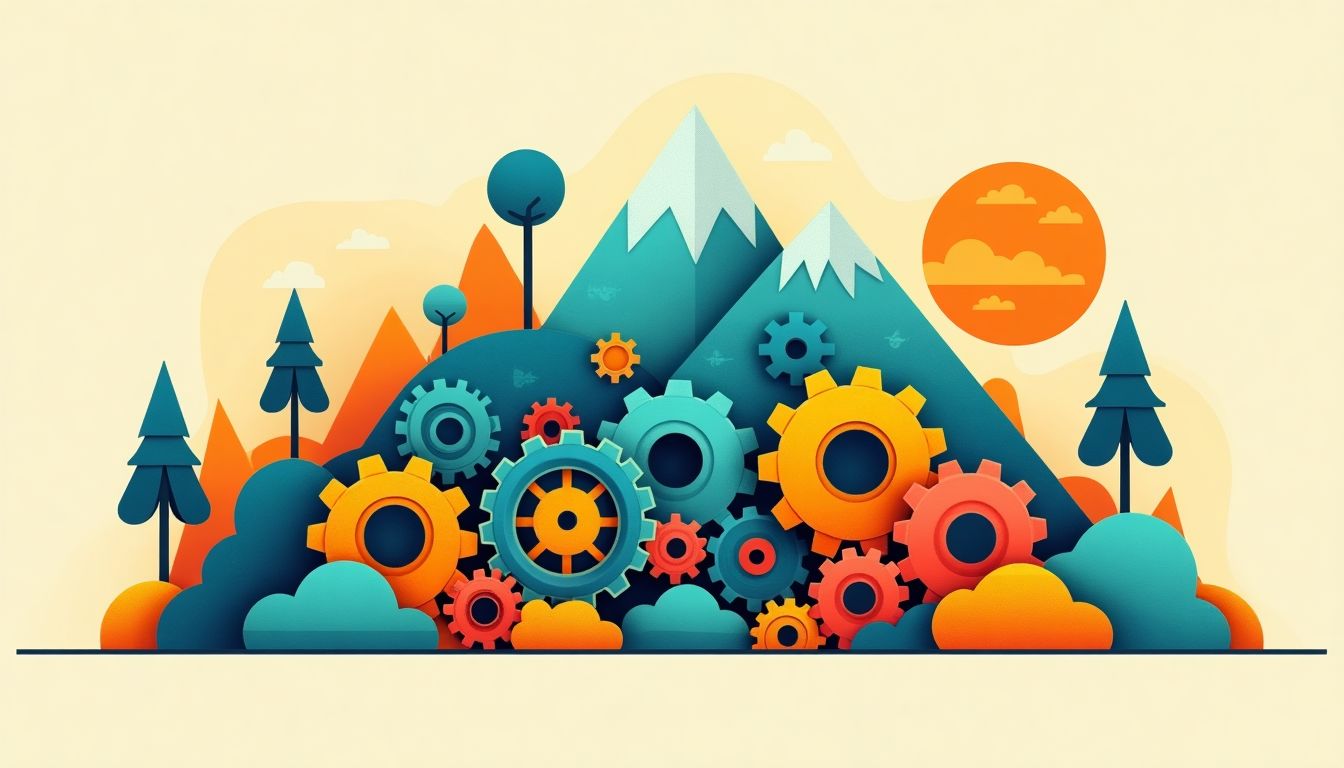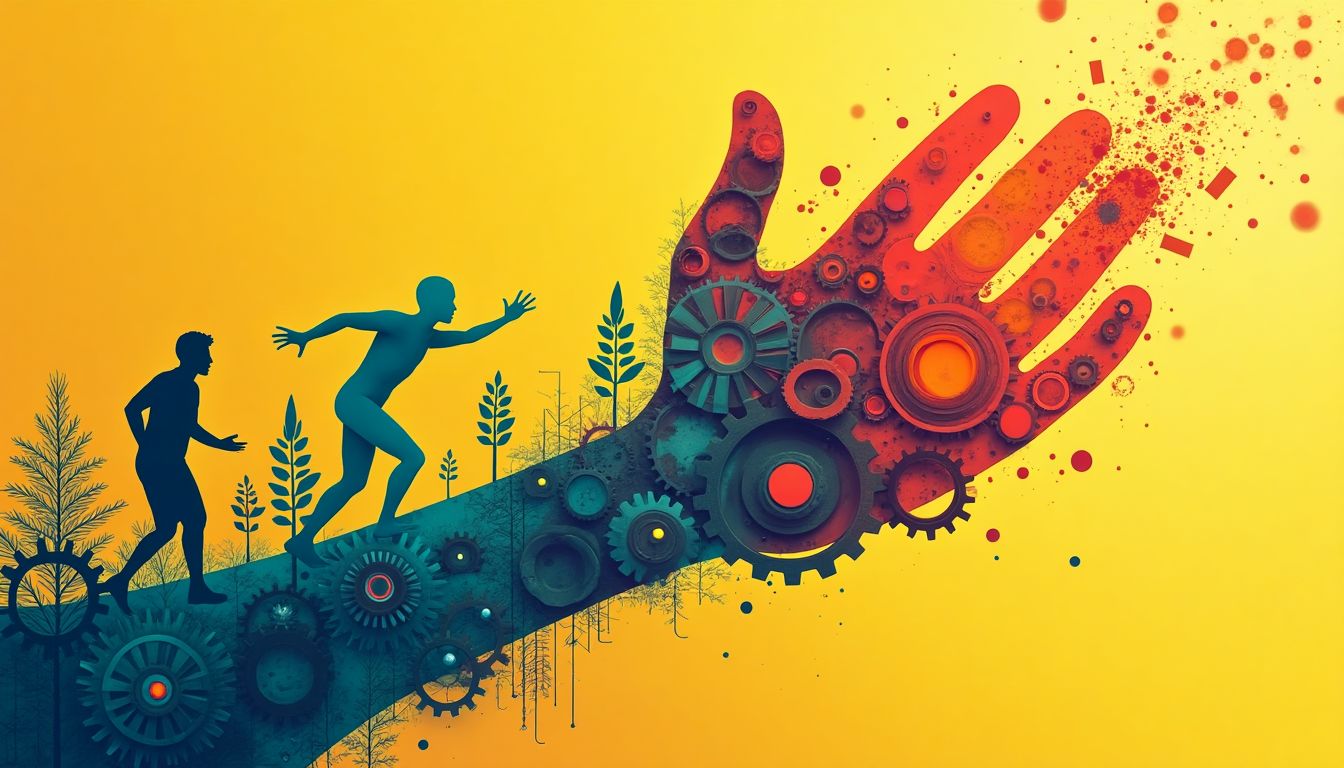Introduction: Generations Without Grit
Hard times don't create heroes. It is during the hard times when the hero within us is revealed. – Bob Riley
This quote strikes a chord as we navigate through the complexities of a world increasingly defined by convenience. Bob Riley was spot-on—our true strength often surfaces when we face adversity. With the rise of automation and AI, we find ourselves increasingly sheltered from the struggles that once forged resilience. This leads us to ponder a rather daunting question: if hardship continues to fade from our daily lives, will it magically erase our capacity to endure? Or more chillingly, will we all end up becoming digital couch potatoes, too pampered to muster even a smidgen of grit?
As we tiptoe into this post-work world, largely cushioned by technological advancements, we might find ourselves in a peculiar bind. Grit, that glorious, stubborn quality that keeps us going when the going gets tough, could risk becoming outdated. Much like the rotary phone—a relic of a bygone era—will the next generation inherit a life so easy that they forget how to flex their emotional muscles?
Academics such as Angela Duckworth, renowned for her work on resilience, and researchers like Carol Dweck, who introduced the concept of a growth mindset, have frequently highlighted the importance of facing challenges. Similarly, physicist Stephen Hawking once remarked that intelligence is the ability to adapt to change. What happens when we reduce the necessity for that adaptability?
The answers may be both enlightening and concerning. This exploration delves deep into the consequences of a life stripped of hardship, asking the essential question: might a world with less struggle render us weaker than we ever imagined?
1. The Historical Role of Hardship in Character Development
Throughout history, adversity has acted as a crucible, shaping the individuals and societies that endure it. The following exploration illustrates this connection:
- 1.1 Evolutionary Perspective: Hardship as a driver of survival and adaptation. For instance, our ancestors faced dire situations—think saber-toothed tigers and the need to find food in harsh conditions. These challenges honed their survival skills, resilience, and ultimately, their character. The same principles apply today; overcoming personal challenges remains pivotal in building strength.
- 1.2 Cultural Examples: How various cultures have revered resilience, showcasing figures who embraced struggle. Stories abound—from the triumphs of Olympian athletes who push through injury to the tales of historical figures like Nelson Mandela, who transformed imprisonment into a platform for change. Cultures have long celebrated the stories of those who endured adversity, highlighting that hardship can indeed birth greatness.
- 1.3 Psychological Studies: Research demonstrating how overcoming difficulties fosters mental toughness. Numerous studies underscore that exposure to challenges can bolster emotional resilience. For example, a 2016 study in the Journal of Personality and Social Psychology illustrates that individuals who face and overcome obstacles tend to experience greater life satisfaction and lower levels of anxiety. This suggests that embracing challenges can be a powerful catalyst for personal growth.
2. The Shift Towards Comfort and Convenience
In the present, we are witnessing an unprecedented shift towards ease in everyday life. Like a cozy blanket on a chilly day, society is becoming quite fond of comfort. But is our love for ease making us soft? Let’s explore how convenience has woven itself into the fabric of our lives:
- 2.1 Technological Advancements: Technology is like that friend who always brings snacks to the party—it makes everything more enjoyable. With the rise of automation, robots are now tackling tasks once reserved for human hands. From the shining vacuum cleaner Roborock to self-checkout kiosks at grocery stores, convenience rules the day.
- 2.2 Cultural Trends: Nowadays, the buzzwords are instant gratification, streaming services, and delivery apps. We want what we want, and we want it now! Remember waiting for a pizza to be delivered? Bad memories, right? Our cultural inclinations lean heavily towards convenience, and with every new service, we inch closer to a life where effort is optional. Platforms like Amazon have turned shopping into a couch sport—who needs to go out?
- 2.3 Comparison with Past Generations: Think back to the good old days of our grandparents—no phones glued to their hands, they made the effort to connect face to face! Compared to their lives of labor and sweat, we now have the luxury to scroll through social media from the comfort of our couches. While ease has its perks, one must wonder if our ancestors would shake their heads in disbelief at our lack of hustle.
3. Implications for Emotional and Mental Resilience
The diminishing role of hardship may contribute to a notable change in emotional health. We live in a world where safety nets are everywhere, but what happens when we never learn to fly? Let’s discuss how this cozy life could impact our mental fortitude:
- 3.1 Mental Health Statistics: Recent studies shine a light on mental health, and it’s a bit alarming. Anxiety and depression are skyrocketing—didn’t see that one coming, did we? Reports from the National Institute of Mental Health show rising trends in mental illnesses, particularly among younger generations. With fewer challenges to overcome, it seems pressures from social media and a lack of real-life experiences are feeding into these issues. Our downhill slide towards comfort is causing more than just a cozy flab!
- 3.2 Impact on Problem-Solving Skills: Can you remember the last time you had to solve a real-life problem without turning to Google? We may be trading traditional problem-solving skills for the convenience of apps and quick fixes. The ability to face challenges head-on resembles a muscle: if we don’t use it, we lose it! It’s important to think about whether we’re nurturing a generation of thinkers or merely button pushers.
- 3.3 Resilience Training vs. Real-Life Experiences: It’s like choosing to eat a protein bar instead of a homemade meal—sure, both are good, but one is much more nutritious! Resilience training can provide tools needed to handle difficulties. However, without authentic struggle, can we truly develop grit? Programs can be great, but they can’t replace the reality of facing challenges that builds a solid character.
4. The Impact on Interpersonal Relationships
As societal dynamics evolve, the traditional bonds of community and support may weaken. It's not just individuals who may suffer; entire families and communities could face challenges. Let’s dig into how this shapes our relationships:
- 4.1 Changes in Family Dynamics: The way families operate is shifting. Parents who grew up with traditional struggles may unintentionally shelter their children from tough situations. This can lead to a lack of resilience in kids, as they aren't faced with the challenges that build character. It's like giving someone a pair of training wheels but never letting them ride without them!
- 4.2 Social Isolation: In today's world, digital interactions flourish while face-to-face conversations decline. According to [Pew Research Center](https://www.pewresearch.org), 72% of teens are on social media, but reliance on these platforms can foster feelings of loneliness. Without real-life challenges to connect over, friendships might become thin and superficial.
- 4.3 Community Support Systems: When everyone is living comfortably, community bonds can weaken. Imagine a team that never practices; without collective adversity, there’s less opportunity to build a tight-knit group. Furthermore, how do we lean on each other when things get tough if we never experience hardships together?
5. Redefining Success in a Post-Work World
The shift towards a post-work landscape is also reshaping our ideas about success. It's a new world out there, and we need to navigate it differently:
- 5.1 New Metrics of Achievement: Success used to look like a steady job, a white picket fence, and retirement savings. Now? It could mean personal fulfillment and mental well-being. We might see achievements measured not just by income, but also by happiness and community knowledge. Revisit the concept of success with an open mind can often bring surprising revelations.
- 5.2 The Value of Grit in Non-Traditional Contexts: While traditional jobs may decline, their sectors require grit too. Creativity, persistence, and the ability to learn from failures will be vital. Whether you’re starting a business, working on personal projects, or contributing to social causes, resilience remains a crucial quality. Consider how [TED Talks](https://www.ted.com/topics/grit) highlight stories of individuals overcoming obstacles in non-traditional Careers; these stories showcase grit in a new light.
- 5.3 Alternatives to Grit: As we redefine success, other virtues might emerge to take grit’s place. Skills like adaptability—a trait honed during times of uncertainty—become invaluable. For example, envision how tech-heavy roles demand flexibility as industries change overnight.
6. AI Solutions: How Would AI Tackle This Issue?
If we embrace the idea that artificial intelligence could play a role in maintaining and even enhancing grit and resilience in a post-work society, we might just uncover some exciting avenues to explore. Here’s a look at how AI solutions can help develop grit in future generations:
- 6.1 Personalized Grit Development: Imagine AI algorithms analyzing user data from various activities, such as learning patterns, social interactions, and personal experiences. By identifying strengths and weaknesses in emotional resilience, AI could create tailored resilience training programs. For instance, applications like Headspace could incorporate this technology to offer mindfulness and grit-building challenges specific to user needs. Using metrics like stress levels, incident reports, and engagement, the AI could adjust and refine approaches continually to steer individuals toward achieving their long-term goals.
- 6.2 Gamification of Challenges: What if adulthood came with the interactive elements of video games? AI could design immersive environments that simulate real-life challenges, where users face and overcome hardships while keeping it engaging. For instance, platforms like Kahoot could be adapted for resilience challenges. Team challenges that require participants to collaborate, communicate, and problem-solve could simulate experiences such as crisis management, teamwork under pressure, and resource management—all in a safe, gamified space. By making grit-building fun, we can potentially engage a younger audience more effectively.
- 6.3 Encourage Community Building: AI has the power to connect individuals like never before. Imagine a platform where community members can find others facing similar challenges. Using AI to create networks that facilitate peer support can lead to authentic, real-world problem-solving experiences. This could work similarly to Meetup, but with a specific focus on resilience-building groups. When users can access online and offline resources to share struggles and solutions, they foster resilience in community settings—creating a modern circle of support fostering grit and resilience.
Conclusion: The Foundation of Tomorrow's Grit
As we stand on the precipice of a post-work society, it's clear we need to connect the dots between technology, resilience, and our human experience. This convergence opens the doors to imagination and possibility, but it also raises crucial questions about our character as a people. Are we prepared to face life’s inherent challenges in ways that forge strength, tenacity, and resolve in the next generations? The familiar adage says, "What doesn't kill you makes you stronger," but in a world increasingly defined by ease, we must ask: Are we unwittingly inviting weakness instead?
This isn't merely an exercise in nostalgia for a time when resilience was a required human characteristic. Instead, it's a call to action as we embrace changes with open arms—changes that offer both the ease of life through technology and the foundation of grit that comes only through struggle. By integrating AI responsibly, enlisting innovative training programs, gamifying experiences, and fostering community connections, we can revitalize resilience to meet tomorrow’s unpredictabilities. Moreover, as we construct this new world, we must remain vigilant about how we define success without traditional markers of labor. By ensuring the values of grit transcend the changing landscape, we imbue future generations with the choice to rise, to struggle, and ultimately, to thrive.
What are your thoughts on the role of technology in building resilience? Are we losing something essential if we shift away from hard work? Share your insights in the comments below!
Frequently Asked Questions (FAQ)
-
Q: What is grit?
A: Grit is a combination of perseverance and passion for long-term goals. It means sticking with something even when it's tough and not giving up easily. To understand grit better, you can read about how psychologist Angela Duckworth defined it in her research, showing that those who have grit are more likely to succeed.
-
Q: How does hardship build character?
A: Facing challenges helps us grow. When we encounter difficult situations, we learn important lessons about resilience and problem-solving. Think of it this way: just like lifting weights can make our muscles stronger, overcoming obstacles can make our character stronger.
-
Q: Can AI help in building resilience?
A: Yes, AI has great potential to assist in developing resilience. It can create personalized training programs and simulations to help people face real-life challenges in a safe environment. For example, programs like BetterHelp use technology to improve mental health services.
-
Q: What are the signs of weakened resilience in society?
A: We can see weakened resilience through increasing mental health issues like anxiety and depression, people relying more on technology for comfort, and a decline in problem-solving skills. For statistical insights, you can check organizations like the National Institute of Mental Health.
-
Q: Will future generations lack the skills to overcome struggles?
A: It's possible. As we move toward a world that emphasizes comfort and convenience due to technology and automation, future generations may not experience the same level of adversity that teaches resilience. If you want to read more about this topic, look at reports from Pew Research Center.
-
Q: How important is community support in developing grit?
A: Community support is crucial for resilience. When people work together to overcome challenges, they build strong bonds and help each other grow. Community service organizations, like Rotary International, exemplify how collective effort can foster support and grit among members.
-
Q: Can we redefine success in a world without traditional work?
A: Yes, success can be redefined. In a post-work society, we might focus more on personal fulfillment, community engagement, and mental well-being rather than only traditional career progression. Many experts discuss this redefinition, including those at World Economic Forum.
-
Q: What role does parenting play in building resilience in children?
A: Parenting styles significantly impact a child's ability to develop grit. Supportive yet challenging environments encourage kids to face difficulties while reassuring them they can succeed. Resources like Parents.com provide tips on fostering resilience in children.
Wait! There's more...check out our gripping short story that continues the journey: Hardship and Heroes
Disclaimer: This article may contain affiliate links. If you click on these links and make a purchase, we may receive a commission at no additional cost to you. Our recommendations and reviews are always independent and objective, aiming to provide you with the best information and resources.
Get Exclusive Stories, Photos, Art & Offers - Subscribe Today!





























1 comment